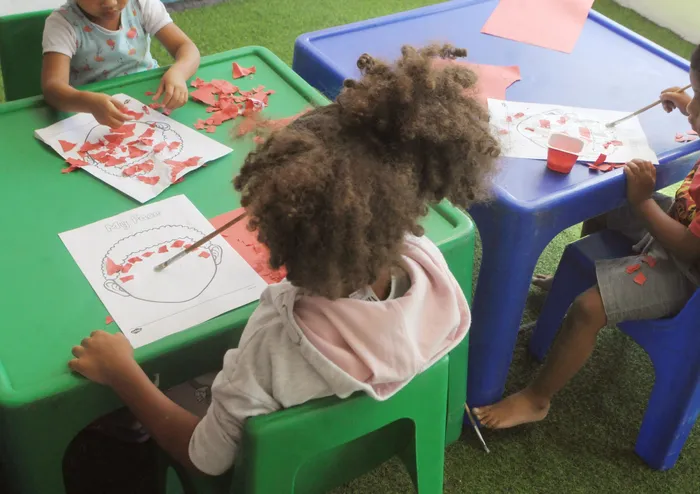Thrive by Five Index reveals South African children lagging in early education

A new report has found fewer than half of South Africa’s four-year-olds are developmentally on track, with children in low-fee programmes most affected.
Image: Tracey Adams / Independent Newspapers
South Africa’s youngest learners are falling behind before they even reach Grade R, with fewer than half of four-year-olds enrolled in Early Learning Programmes (ELPs) developmentally on track.
This is according to the Thrive by Five Index, the country’s largest survey of preschool outcomes, released this week.
The survey, conducted every three years, assessed 5000 children across 1388 ELPs in all nine provinces. A smaller sub-study also looked at children from low-income households who are not enrolled in any ELPs.
The findings paint a stark picture.
“Too many young children in South Africa start school without the skills needed to succeed in the foundation phase and beyond,” the Index states.
According to the results, only 42% of enrolled four-year-olds are on track for early learning, while 28% are falling behind and 30% are falling far behind.
The situation is even worse for children not attending any programmes: just 18% were on track, while 55% were falling far behind.
“Non-enrolled children are the most vulnerable group, facing the steepest developmental delays,” the report notes.
Nearly a third of South African four-year-olds are not enrolled in an ELP, with caregivers citing financial barriers as the main reason.
The Index also highlights significant disparities along gender and income lines. “Girls do better than boys: 48% of enrolled girls are on track compared to 37% of boys,” the report found.
Children in low-fee programmes, those charging less than R50 per month, are half as likely to be developmentally on track as their peers in high-fee centres.
The Index outlines five priority actions to change course, starting with improved and timely funding for ELPs.
“Without predictable, timely funding, ELPs are financially unstable, less able to retain staff and maintain quality.”
Currently, more than 90% of centres rely on parent fees as their main source of income, while only 44% reported receiving the government subsidy. Even among those who did, just 39% received it on time and in full.
The report calls for urgent efforts to remove financial barriers to enrolment, better pay and conditions for early learning practitioners, and sustained funding for NGOs that provide training and resources. It also stresses the need to integrate child health services, strengthen teaching practices, and involve parents, especially fathers, more actively in early learning.
“Subsidy values must progressively reflect the true cost of delivering quality early learning, including fair pay, decent working conditions, and continuous professional development for practitioners,” the Index recommends.
The survey found that stunting remains a significant challenge, affecting 7% of enrolled children and 18% of those not enrolled. Stunted children, it says, are already five months behind their peers by age four.
Despite these challenges, the Index offers hope, pointing to solutions that can improve outcomes across the board if implemented decisively.
“The Thrive by Five Index 2024 is both a warning and a guide,” it said.
“It shows that too many young children start school already behind, held back by poverty, inequality, and inconsistent programme quality. But it also shows what can change. Urgent action is essential if South Africa is to meet its 2030 goals and give every child a strong start. The evidence, investment, and partnerships are in place. What is needed now is decisive, collective action, by government, civil society, academia, business, and communities, to ensure every child has the opportunity to thrive by five.”
Cape Times
Related Topics: